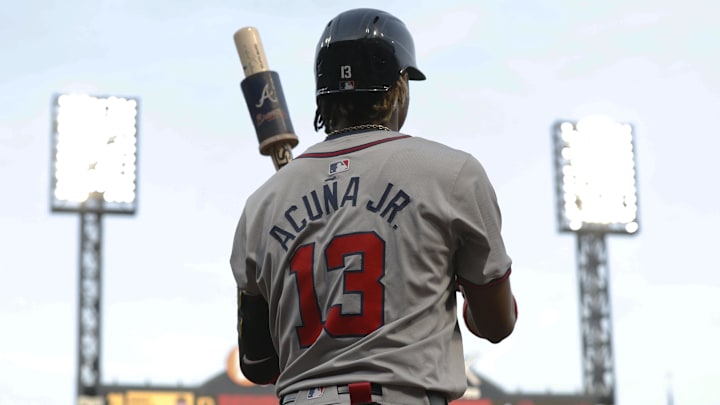Jesse Winker – Nationals – L/L Free Agent 2025
The Reds selected Winker in the first round of the 2012 draft, and he remained with the team through the 2021 season. While he hit 24 homers in his last season with the Reds, he’s always been more of a gap-to-gap hitter with double-digit homers and doubles.
He batted 288/.385/.504/.888 as a Red, but after being traded to the Mariners in March 2022, recurring injuries meant he never found the same groove with the M’s. In December, the Mariners traded to the Brewers, where his injury issues continued. Back spasms sent him to the IL in July, and he missed the rest of the season.
This season with the Nationals, he’s batting .235/.348/.398/.746 with a .333 wOBA and 116 wRC+, and seven stolen bases in eight attempts. He walks 12% of the time and strikes out 23.2%, a significant increase from his time with the Reds in a small sample size.
Winker’s 31 in August and on a one-year deal with about $1.33M remaining. He played a lot during Lane Thomas' absence, but he’s a free agent at the end of the year and wouldn’t be an expensive addition.

More Expensive Options
If the Braves could move David Fletcher’s contract, it might be possible to add a more expensive player. Daulton Varsho and Tyler O’Neil may also be available, but both would add about $3.75M to the payroll, and I doubt they’ll do that without some creative accounting,
And let’s not forget that the Braves need to add at least one starting pitcher – Eric Fedde, for example – to make a serious postseason run.
When it comes to cost, the Atlanta Braves have proved willing to spend to reach the World Series. But, as Mark Polishuk explained in a post for MLBTR discussing the Zach Eflin rumor, the long-term cost of an expensive addition is more than money.
That’s a Wrap
Some fans want the Atlanta Braves to simply go out and get a better player as if it’s as easy as going to Amazon and ordering one. Smart fans know It isn’t easy or cheap.
Alex Anthopoulos has found ways of adding players without trading significant prospects. However, the Braves’ farm system is short on high-upside prospects, and those they have represent the future of the rotation.
He'll resist trading those pitchers and busting the third CBT threshold because it's hard to find quality prospects in what’s effectively the late second or early third round.
